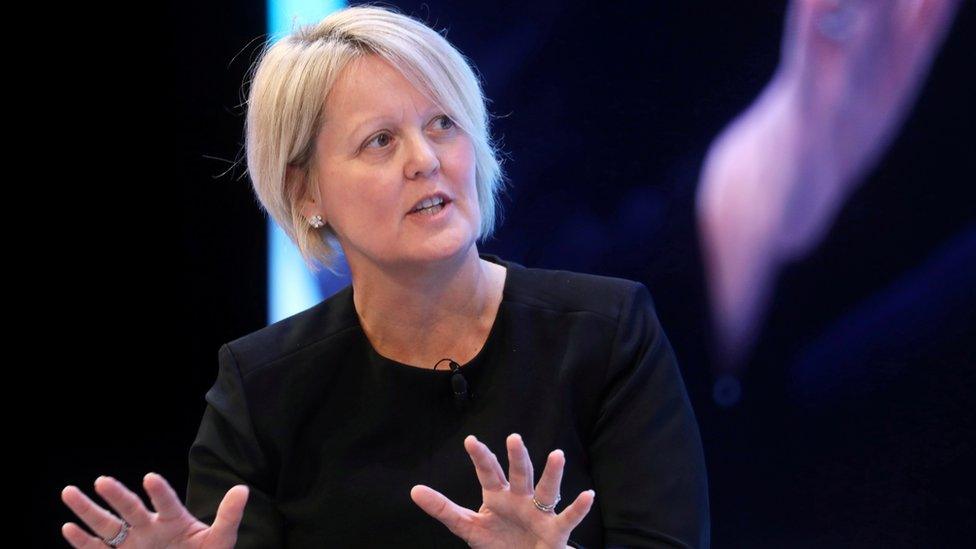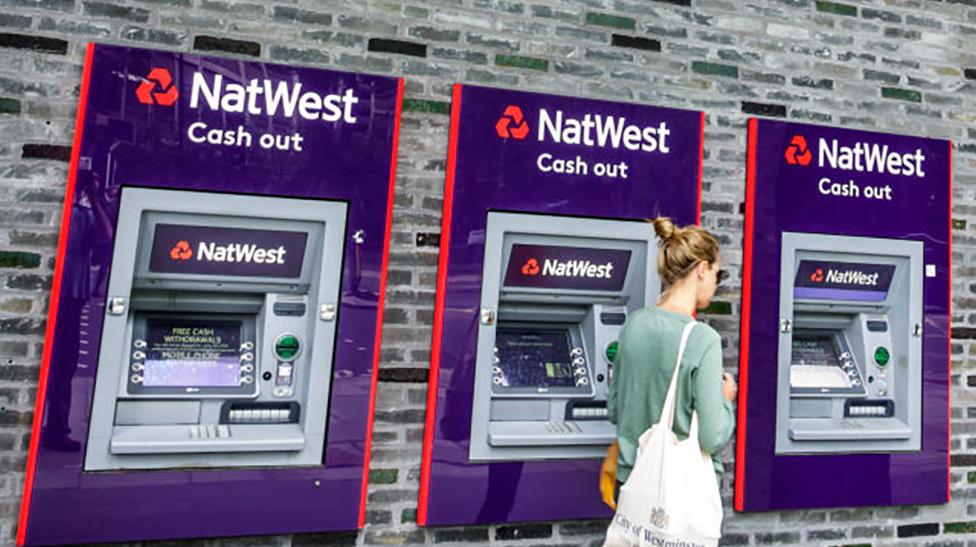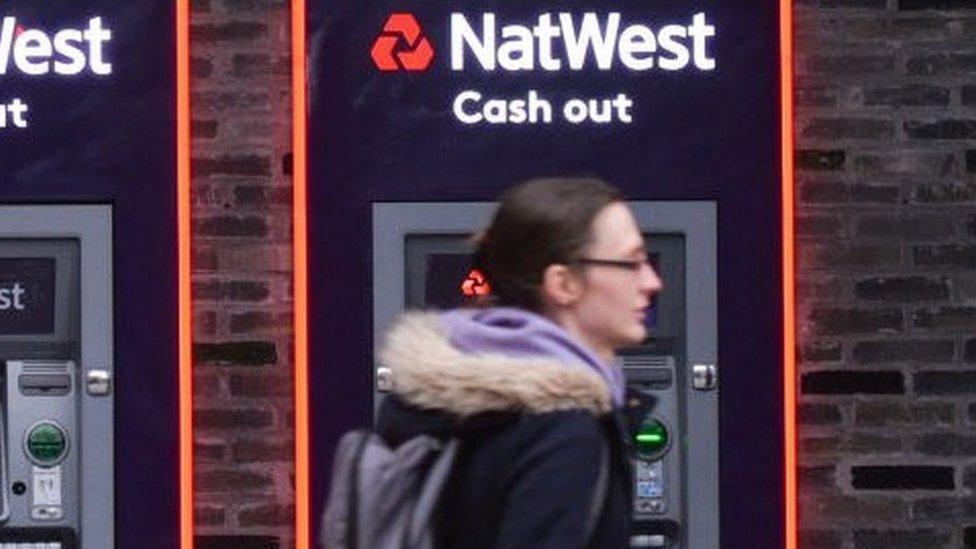NatWest boss gets £5m payout as mortgage profits soar
- Published

Alison Rose is the chief executive of NatWest Group
NatWest's chief executive Alison Rose pocketed a bumper £5.25m last year, as profits surged.
The payout included a bonus - the first time the bank's boss had received one since the company was bailed out during the 2008 financial crisis.
Annual profits at NatWest increased by a third to £5.1bn, benefiting from soaring mortgage and loan rates.
The bank increased its total bonus pool, saying its strong performance was down to its staff.
The bonus pool for its bankers rose by nearly £70m, to £367.5m.
Ms Rose defended the bonus payout, which handed her a 10% pay increase. She told the BBC's Today Programme: "I think a strong performing banking sector is positive, it allows us to support the economy and it allows us to support our customers."
The group's chief financial officer Katie Murray received a 4% increase in her yearly compensation, taking home a total pay packet of £3.64m.
It was the first year of a new executive pay policy closely linked to performance which meant senior staff were able to cash in on the bulging profits produced by higher interest rate charges.
Borrowers have faced increasing financial pressure as rates have edged up consistently over the past year.
Ms Rose said the bank has passed on interest rate increases to savers and claimed that the bank was "helping people build regular saving habits".
But analysis for the BBC by financial information service Moneyfacts showed that the increase on standard mortgage charges far outstripped that on standard savings accounts - by a factor of six times.
Interest on the bank's variable rate easy access savings account was increased by just 0.55 percentage points from 0.1% to 0.65% over 2022.
Meanwhile, over the same time its standard variable mortgage rate climbed more than three percentage points from 3.59% to 6.74%.

The bank does offer other savings deals and recently increased the rate paid on its Digital Savings Account to 6%. But the account is only available to NatWest current account holders who are only allowed to deposit up to £150 a month.
The bank said debt levels remain low and there had been no marked rise in the number of borrowers defaulting on loans.
However, in the final three months of the year as economic conditions started to impact some customers there was an increase in what it calls stage three defaults, meaning it expects to incur a loss from a loan.
"We're seeing very low levels of arrears and defaults, well below pre-Covid level and that's positive, but it is very tough," said Ms Rose.
But the bank warned that the economic outlook remains uncertain, which means its costs for 2023 are set to be higher than forecast while income will be lower than expected.
That news sent the bank's shares tumbling by 7%.
'Offensive'
"NatWest may have delivered its biggest profit since the financial crisis but investors are far more concerned about what's coming next and that's less positive," said Russ Mould, investment director at AJ Bell.
Meanwhile the bank is no longer majority-owned by the state and handed back £2.6bn to the government during 2022 as it moves closer to being private again.
The record profits and bonuses prompted a call for a windfall tax on big banks from Unite union leader Sharon Graham.
"It's offensive that government ministers are insisting NHS workers take another savage pay cut while their big City banker friends are given carte blanche to make billions," she said.
She said the greed displayed by banks and energy companies was fuelling the cost-of-living crisis.
"An epidemic of profiteering has brought this country to its knees - workers are not responsible for it and should not have to pay for it."
She called on the government to hold big businesses to account.
Related topics
- Published27 May 2022

- Published28 March 2022
